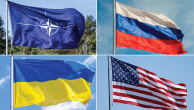“The Religious Dimensions of the Torture Debate,” a web graphic published April 29 by the Pew Research Center’s Forum on Religion & Public Life, has generated a great deal of attention and interest. It shows that currently, more than six-in-ten white evangelical Protestants (62%) say that the use of torture against suspected terrorists in order to gain important information can be often or sometimes justified. This is significantly higher than the number of white mainline Protestants (46%) and religiously unaffiliated (40%) who say torture can be often or sometimes justified. Additionally, those who attend religious services at least once a week are much more likely than those who seldom or never attend religious services to take this view (54% vs. 42%). But there are only small differences across religious groups in the number saying that torture can often be justified, and among every group there are relatively few people who say that torture can never be justified.
While the differences in opinion among religious groups are evident enough, the source of those differences is less clear. In the case of an issue such as evolution, one can point to clear doctrinal reasons for some religious groups to reject the idea of evolution by natural selection. But there may be no such theological differences when it comes to torture or other political issues, such as environmentalism or views of government’s role in the economy. Instead, differences among religious groups may reflect other social and political differences among the members of those groups.
Indeed, religion is only one of many factors correlated with views on the justifiability of torture. Differences between Republicans and Democrats are even larger than differences across religious groups, with 64% of Republicans saying torture can be often or sometimes justified, compared with only 36% among Democrats. Those with a high school diploma or less education are somewhat more likely to say torture can be justified compared with those with at least some college. Whites are slightly more likely than blacks to say that torture can be justified, and southerners are more likely to take this view compared with people in other regions.
Statistical analysis that simultaneously examines correlations between views on torture, partisanship, ideology and demographic variables (including religion, education, race, etc.) finds that party and ideology are much better predictors of views on torture than are religion and most other demographic factors. In fact, once party and ideology are taken into account, education and geographic region are the only demographic factors that continue to show a strong correlation with views of torture. Of course, religion itself is known to be a strong factor shaping individuals’ partisanship and political ideology. Attitudes about torture are likely to reflect both moral judgments and political considerations — both of which may be formed in part by religious convictions — about circumstances under which torture may be justified.




